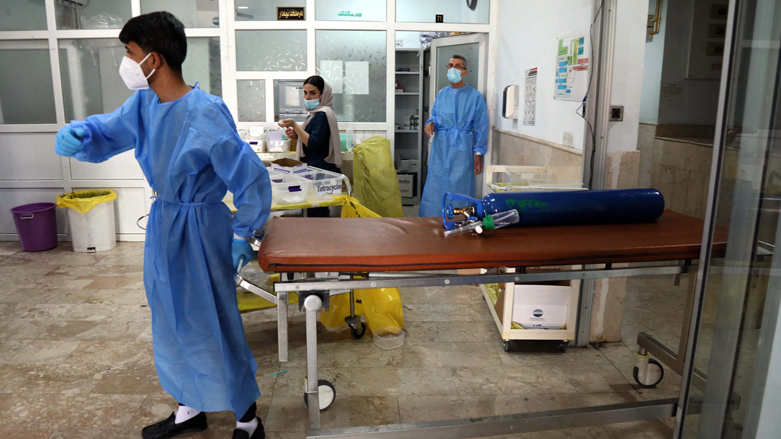7,000 have died of COVID-19 in Kurdistan Region since pandemic began

ERBIL (Kurdistan 24) – The Kurdistan Region has recorded over 7,000 deaths as a result of COVID-19 complications since the pandemic’s outbreak in early 2020, health officials announced on Tuesday.
Health Minister Saman Barzinji also gave COVID-19 statistics from the autonomous Kurdistan Region in a press conference in Erbil on Tuesday following his meeting with Dr. Ahmed Zouiten, the World Health Organization (WHO) representative to Iraq.
Since early 2020, 7,012 individuals have died from complications related to the contagion, the minister announced. During the same period, there were 378,000 infections officially recorded by public health institutions.
The Kurdistan Regional Government (KRG) also conducted over three million COVID-19 tests over the same period, the minister added.
A year after the outbreak, the regional Ministry of Health began providing COVID-19 vaccines to its citizens, starting with healthcare workers, people with underlying health conditions, and the elderly.
People over 12 years of age can also receive one of the available vaccines – AstraZeneca, Pfizer BioNTech, and Sinopharm.
Out of the more than 2.5 million vaccine doses that Kurdish health authorities have so far taken delivery of, 68 percent have so far been administered, Barzinji said.
More than 1.2 million people over the age of 18 have received a vaccine dose, while no fewer than 726,000 people have been fully vaccinated.
The KRG has mandated vaccination for its public employees, including schoolteachers.
The minister expressed his appreciation to the WHO for its cooperation with the Kurdistan Region in the fight against the pandemic.
